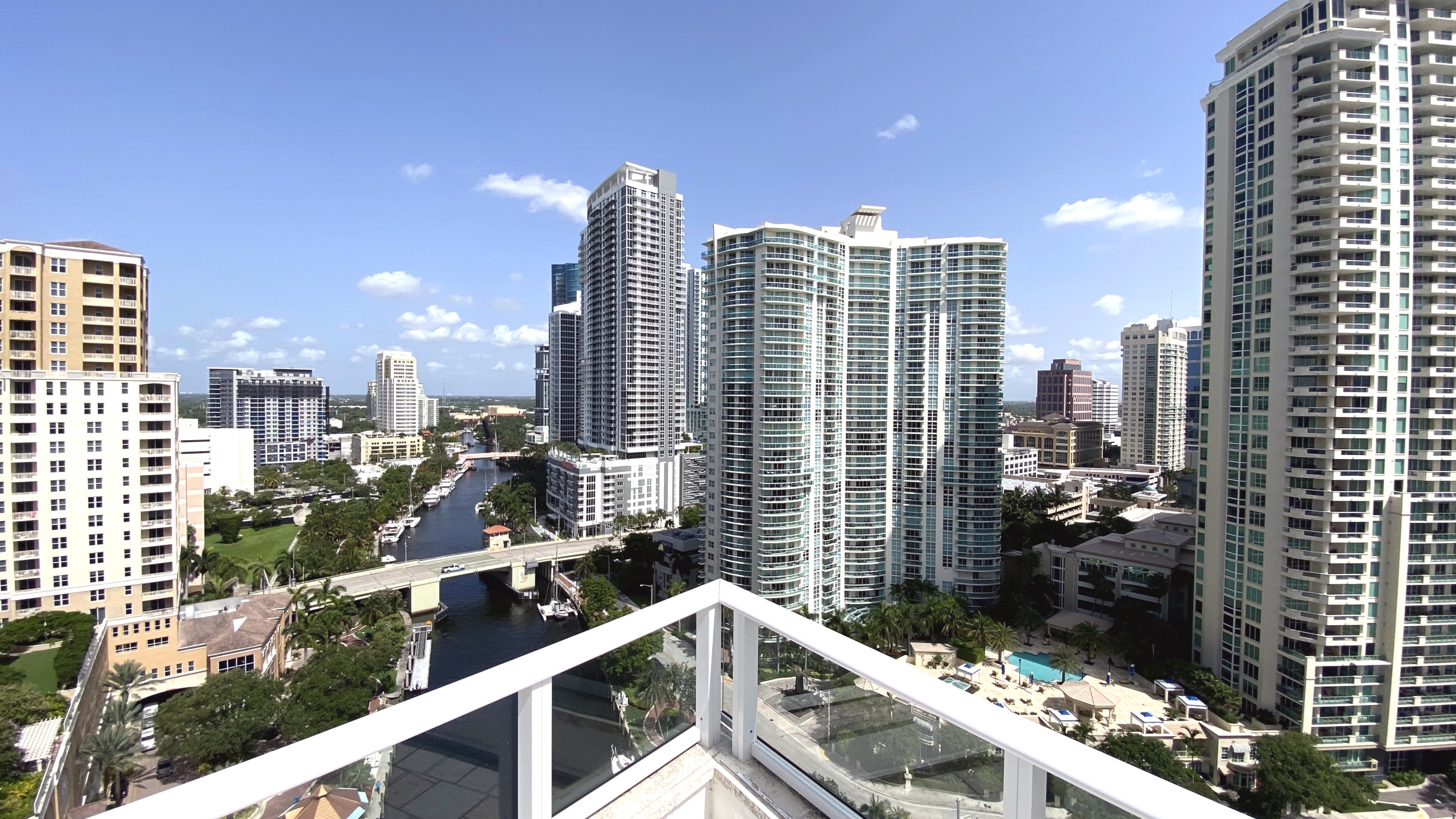Strong demand from international buyers – many who find prices and interest rates cheaper here – should largely offset any drop in demand from domestic buyers.
MIAMI – Many expected the interest rate hike to be a ray of hope for those looking to buy in Miami’s competitive real estate market. Under normal circumstances, rising interest rates should cool down the market, but housing demand remains so strong and there is so little land to build on in South Florida, that the market looks strong, experts say.
“Everyone wants a piece of Miami,” says Edgardo Defortuna, a developer that has built some of Miami’s biggest projects. “In general, the growth of the Florida market has been very good. We continue to see a very high demand, not only from natural markets such as Latin America, but from the rest of the United States,” adds the executive president and founder of the Fortune International Group.
Not only South Florida, but also Naples, Tampa and Clearwater are desired real estate markets that have benefited from the possibility to work remotely, Defortuna says.
Miami is also becoming increasingly attractive to buyers who work in technology, an industry that has been favored when Greater Miami became the fourth fastest growing area in technology jobs, according to a recent report by the Computing Technology Industry Association (CompTIA.)
The data confirms that in Miami property sales continue to rise. February was the best month in Miami-Dade condo sales history, posting a 13.2% increase over last year, according to the Miami Association of Realtors (MIAMI).
“Demand remains at all-time highs for Miami real estate,” said MIAMI Board President Fernando Arencibia Jr. “Buyers from high-tax, high-density states keep buying homes in South Florida and we are now seeing a huge return of global buyers as travel protocols put in place during the pandemic are relaxed.”
Interest rates hike won’t have a big impact on Miami
After two years of falling below 3%, interest rates reached about 5% on April 5 for a 30-year mortgage. While home prices are not expected to drop sharply in the general market, price increases should at least level off, experts nationwide expect.
Rising interest rates mean a higher monthly payment, and people selling their homes will refrain from asking a price too high because of the risk of not finding buyers. At the same time, with less attractive interest rates, houses will be on the market longer.
Last year, buyers in Miami started bidding wars, making offers above the sale price, often in cash, to buy a home. Experts expect that this scenario will become less common as the Federal Reserve raises interest rates, which will happen sooner than expected several times this year.
“The increase in interest rates affects the local buyer,” says Defortuna, indicating that in many cases they “finance 70% of the purchase of the property and a 1% change in rates means something important for them.”
People who applied for mortgages in February will pay $127 more in principal and interest than those who closed in January, and $337 more than those who financed a property a year ago, according to national figures from the Mortgage Bankers Association (MBA).
Miami a bargain for international buyers
The increase in interest rates would not affect international buyers, who represent a considerable percentage in the Miami market.
“International buyers not only come with cash but are used to paying much higher rates than what we have here and potentially higher than what we are going to have,” says Defortuna, indicating that the political changes expected in Latin America will stimulate investing in South Florida real estate. “If Latin America is doing poorly, Miami is doing well, and if Latin America is doing well, Miami is also doing well,” he repeats, somewhat jokingly, a common saying among developers and real estate agents.
As a consequence of this flow of foreign investors, in Miami cash is king. In January, 40% of homes sold in Miami-Dade were cash transactions, while 41% of sales in Broward did not include mortgages, according to the Miami Association of Realtors. Both figures are well above the national average of 27% for home purchases in cash.
This is one of the factors that affects the members of the middle class in Miami who want to buy a house. Rising interest rates, leading to less affordable monthly payments, will cause many first-time homebuyers to give up or postpone their plans. Which in turn would further complicate the rental market, already saturated and in the midst of a housing crisis.
Given this scenario, is it better to buy than to rent?
“It’s 100% better to buy,” says Claudia Serna, CEO and founder of Brokers, LLC, with 20 years of experience in South Florida’s real estate market. “Rents have risen more than mortgages and interest rates are below inflation.”
With homes in short supply and exorbitant prices for those near the water, buyers are still looking for condominiums, now preferring larger ones, which is one of the trends in the Miami market.
“Buyers want to be close to the water, and when there are no houses available, they buy condos, that’s why the condo inventory is shrinking,” says Serna, noting that her company has 500 real estate agents and sometimes they don’t have anything to sell to customers, due to the low inventory.
A large condo project near the water took the land where the tennis courts used to be to build more apartments, says Serna as an example to demonstrate the land shortage.
“We are still cheap, and for [buyers] in California and New York, we are a gift,” she says, indicating that this situation represents a “problem for people who sleep and work in South Florida.”
Even so, other experts point out that the increase in prices in South Florida is bringing them up to the level of those in other areas of the country from which buyers are coming, which could limit the interest for those who come looking for savings in housing.
The median rent in South Florida last year was $3,000, according to the rental website Redfin, and with the rise in property insurance and repair and construction costs, landlords increased rents by as much as $500, prompting proposals and emergency measures to control rents in Miami-Dade.
“Both the cost of land and construction have been increasing significantly,” said Defortuna, adding that sometimes it goes up 30% including labor, which has not been reflected in employees’ salaries. “That makes affordability for people who can’t afford Miami price levels much more difficult.”
Buyers and developers can protect themselves from rising rates, Defortuna affirms. There will be a trend towards fixed-rate mortgages, which in turn represents an advantage for buyers, who can guarantee a specific monthly payment for their homes. Unlike those who rent, they will not experience a drastic increase in the housing payments.
“Developers can buy insurance against rate increases, even if it costs a little more at the beginning, to make sure that costs won’t change if rates go too high. There are always financial mechanisms to prevent such rate hikes,” said Defortuna.
Serna has some tips for those looking to buy in Miami’s competitive market.
“Get advice from an agent who has knowledge and experience. In this market you have to know how to handle what is happening and know how to play with the numbers. You have to look for credentials, don’t be shy about asking for references,” she concluded.
© 2022 Miami Herald. Distributed by Tribune Content Agency, LLC



